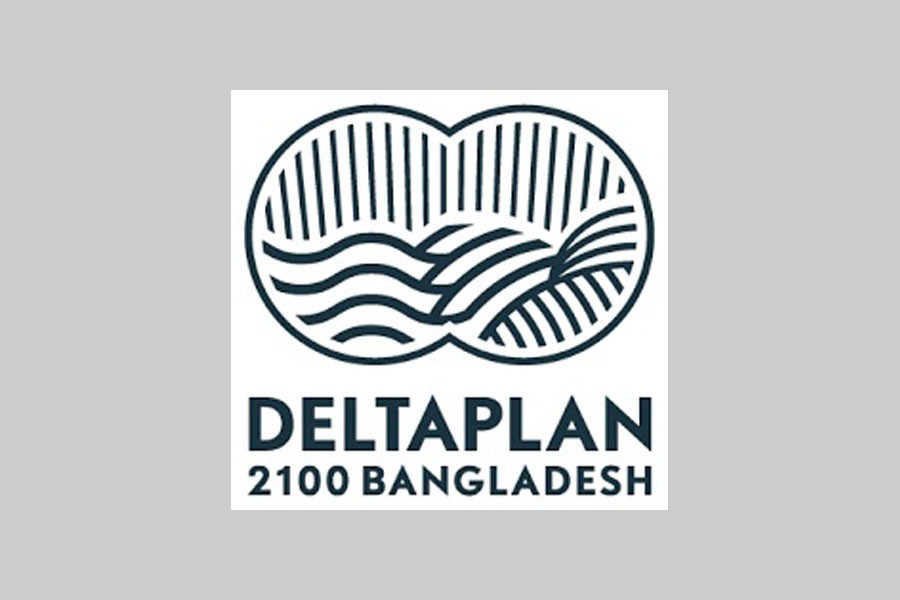Nod for 100-yr Delta Plan likely this week
Eighty projects primarily picked for execution

Published :
Updated :

The long-awaited mega strategy 'Bangladesh Delta Plan (BDP) 2100' is likely to get the go-ahead this week.
It will potentially pave the way for the country to increase its water-related spending threefold by 2030.
The 100-year plan will allow Bangladesh to spend 2.5 percent of its gross domestic product (GDP) for eighty water projects.
It is around 0.8 per cent up from the current spending.
The countrywide plan will be tabled for final approval in the National Economic Council (NEC) meeting next Tuesday, Planning Commission (PC) officials said.
According to available documents, failure to implement the proposed plan could result in the loss of 1.3 per cent of the GDP annually.
"The plan is crucial for Bangladesh to adapt to the challenges due to its deltaic nature," PC member Prof Dr Shamsul Alam told the FE.
"It would be vital to adapt to climate change, maintain ecological balance, sustain agricultural productivity and protect natural resources," he added.
The commission's general economic division (GED) has formulated the plan.
With a population of 160 million crammed into only 147,570 square kilometres, the deltaic nature of Bangladesh poses numerous challenges and opportunities.
The country offers one of the highly fertile lands with plentiful water bodies and abundant aquatic resources.
But it faces erratic floods, droughts, river erosion, sea-level rise, cyclones, sedimentation and such.
Against this backdrop, the government initiated to chalk up a delta plan with the help of the Netherlands.
The purpose is to 'reach optimum level of water safety, food security and sustained economic growth'.
Of the projects primarily picked for execution, the documents show, 65 are infrastructure and 15 knowledge or institutional capacity-building schemes.
The total project costs have been estimated at Tk 2,978 billion or $37 billion, the PC officials said.
Prof Alam said, "Eighty percent of the overall spending will be publicly-funded and the remaining 20 percent will be borne by the private sector."
"The funding strategy will have to combine non-tax revenue, cost recovery for public services, Green Climate Fund and traditional DP funding," he added.
Focusing on the international best practices, the BDP has notably put emphasis on 'beneficiary pay principle' as a potential source of public finances.
Meanwhile, areas like water purification, water supply, sewage treatment, irrigation and dredging have been identified as potential areas of private financing.
The delta plan has also divided the country into six hot spots, a broad grouping of districts and areas facing the risk of similar natural hazards.
These are (a) coastal zone (b) Barind and drought-prone areas (c) haor (wetland) and flash flood areas (d) Chattogram Hill Tracts (e) river systems and estuaries and (f) urban areas.
Analysing the documents, it was found that the highest allocation will be needed for coastal regions and the lowest for haor and flash flood areas.
The eight-decade plan has also recommended multiple institutional reforms for its proper implementation.
It has called for the formation of a high-level 'Delta Governance Council' to link political commitments, strategic advice and policy guidelines.
As the documents reveal, prime minister would chair the forum and planning minister act as its vice-chairman.
The BDP also called for the creation of 'Bangladesh Delta Fund' and enactment of a 'Delta Act' for intuitional and legal mechanism for funding.
It proposed the establishment of a project/programme selection committee to be led by a GED member for selection of projects.
It has called for the establishment of water management entities at local level to ensure stakeholders' representation in water resources management.
"As the BDP is a long-term plan dealing with lots of complexities and externalities, a multi-sectoral and multi-institutional approach is vital for its proper implementation," said Dr Atiq Rahman.
About private investment in the schemes, the award-winning environmentalist said, "Normally, the private sector won't be interested unless there is a profit motive in it."
Dr Rahman emphasised harmonisation between BDP and other national and international goals like SDG, Vision 2041 or 100 economic zone plan.
mehdi.finexpress@gmail.com


 For all latest news, follow The Financial Express Google News channel.
For all latest news, follow The Financial Express Google News channel.